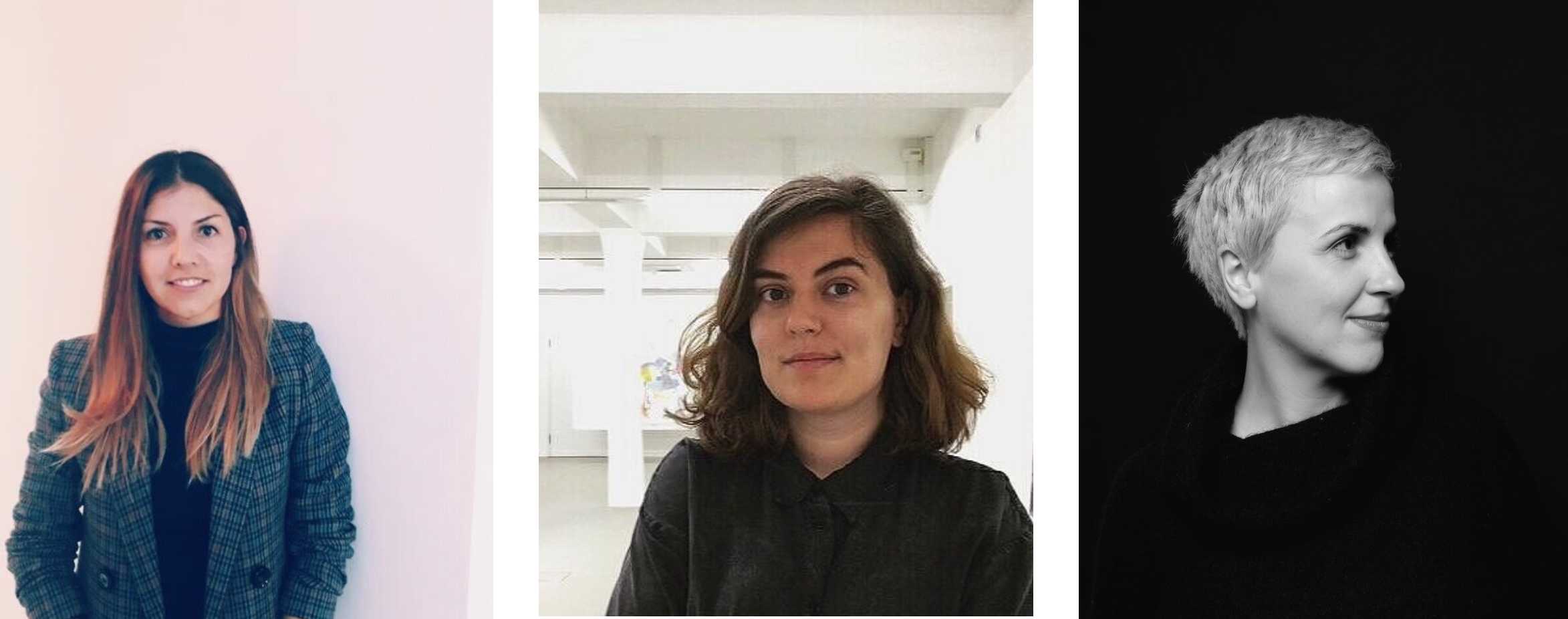Collective Rewilding
Collective Rewilding is a research and curatorial laboratory that proposes critical new examinations and optical perspectives to help us unpack histories of resistance, knowledge exchange, and networks of artistic solidarity against colonial and Anthropocenic structures of power. By problematising the concept of rewilding, we investigate the intersection between care, ecology, and curatorial practice. Rewilding, in that sense, constitutes a methodology for curatorial and artistic practice that helps us situate ourselves vis-à-vis each other, other-than-human beings, and our multiple yet disparate emergent social concerns. Aiming to construct assemblages of views, temporalities, and peoples we engage in practices that depart from a multi-species, feminist, and decolonial ontology. Collective Rewilding is an international, non-profit association founded in 2020 by Sara Garzón, Ameli M. Klein, and Sabina Oroshi.
Sara Garzón is a PhD Candidate in Art History at Cornell University and specialises in contemporary Latin American art. In her research, Sara focuses on decoloniality, temporality, and indigenous ecocriticism. Sara has worked as the Jane and Morgan Whitney Curatorial Fellow as well as the Lifchez-Stronach Curatorial Fellow at the Metropolitan Museum of Art, and as Audience Engagement Associate at the Brooklyn Museum.
Besides museum appointments, Sara has also curated a number of independent exhibitions in Latin America and the US. Sara has contributed to several exhibition catalogs, anthologies, peer-reviewed journals, and art magazines. Her most recent editorial project Worldmaking Practices: A Take on the Future was published thanks to the support of the Colección Patricia Phelps de Cisneros, and her article “Manuel Amaru Cholango: Decolonizing Technology and the Construction of Indigenous Futures,” was awarded Best Essay in Visual Culture Studies 2020 by the Latin American Studies Association (LASA). Sara has been invited as a curator at the residency “Creative Ecologies and Decolonial Futurities,” in Chiapas, Mexico (2019); the Emerging Curators’ Workshop at Para Site in Hong Kong (2019), and was part of the Science and Technology Society at the Delfina Foundation in London (2020).
Based between Venice and Graz, Ameli M. Klein is the co-founder of the curatorial research group Collective Rewilding.Her current research interrogates the effort to categorize, cartographizise, and classify local and foreign culture in the 19th and 20th centuries to create a pseudo-scientific methodology prone to racial convictions. Tracing these ideologies in current identity politics, she examines how enlightenment museology and the belief that the appreciation of art shapes the moral and ethical character of the viewer bleeds into contemporary curatorial practices.
She currently is a Lecturer at the IZK Institute for Contemporary Art at the TU Graz, an EPIC Fellow at the AAMC Engagement Program for International Curators with Terra Foundation and Art Fund_ (2021), and a participant at the Anthropocene Campus Venice, “Water Politics in the Age of the Anthropocene” (2021) by the Max Planck Institute and the HKW. Ameli has been a Curator in Residence at the SCL, Shanghai Biennial (2019), the V-A-C Curatorial Lab Venice (2019/20), and at artpace San Antonio, Texas (2020). She received VDAC and BCGS fellowships to the History of Art Departments of Dartmouth College (2016/17) and Cornell University (2018/19).
Sabina Oroshi is a researcher and a curator from Croatia based in Hamburg, Germany. She holds a MA in Art History and Museology & Heritage Management from the University of Zagreb, as well as a BA in Art History and Philosophy from the University of Rijeka. Strongly focusing on educational programming and outreach, Sabina is working in the artist planning department of the Elbphilharmonie in Hamburg and holding courses for students within the cultural program of AStA Hamburg at the University of Hamburg.
Previous work experience includes positions in the curatorial and educational departments of the Millerntor Gallery in Hamburg, the Museum Lapidarium in Novigrad, the Rigo Gallery in Novigrad, the Museums of Contemporary Art in Zagreb and Krakow, having been involved in the Peggy Guggenheim Collection (2016), Venice Biennale (2015), WHW Curatorial Collective (2015), and Avant-garde Research Institute (2015). Currently researching the discrepancy of the curatorial discourse between the western and post-socialist societies. Aiming to further unpack the political economy of art while researching alternative concepts that consider the market economies of the (former) socialist economy.

